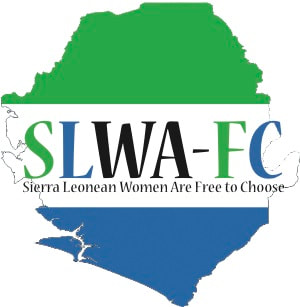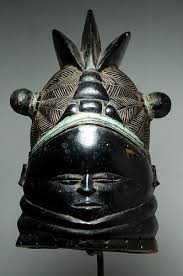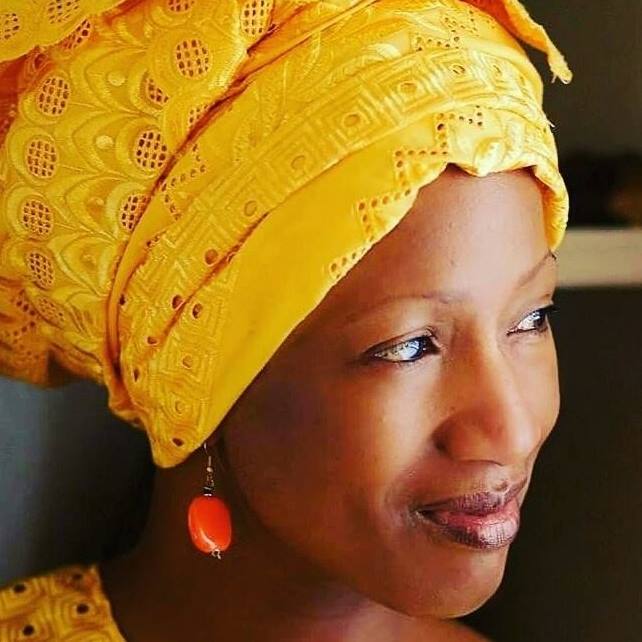A Public Statement by Sierra Leone Women are Free to Choose (SLWAFC)On behalf of the National Sowie Council (NSC) in Sierra Leone and as the founder and acting head of Sierra Leone Women are Free to Choose (SLWAFC), I would like to address a radio show aired on May 23, 2019, on Radio Democracy 98.1 that featured an interview with Ms. Mimi Bangali, program associate at UNFPA Sierra Leone and statements she posted on Facebook and other social media concerning female circumcision, obstetric fistula and the alleged case of a five-year old girl at the Women’s Center in Aberdeen. First, I would like to acknowledge the fine work of Ms. Bangali as an advocate for women’s and girls’ health and general well-being and to commend UNFPA for their valuable support to fight obstetric-fistula in Sierra Leone, among their other investments. As one of the poorest countries in the world with one of the highest rates of maternal morbidity and mortality, Sierra Leone is in dire need of this kind of national and international attention to any and all matters affecting women’s sexual and reproductive health. However, various UN organizations led by UNFPA are interested in pursuing another agenda, that is, ending female circumcision in Sierra Leone and around the world. Female circumcision, as far as current medical evidence affirms, has nothing to do with women’s sexual and reproductive health problems in Sierra Leone. But in their zeal to eliminate what they and other opponents of female circumcision refer to as Female Genital Mutilation (FGM), UNFPA and Ms. Bangali have on several occasions made misleading statements or comments linking obstetric fistula with female circumcision. Fistula is a global condition that is common to women, circumcised and uncircumcised, who live in very poor countries with very limited access to quality health and surgical care. As far as we are aware, there is no medical evidence supporting that female circumcision, especially the types performed in Sierra Leone, is linked to this debilitating condition or any other long-term sexual or reproductive problems in women. Once again, obstetric fistula affects both uncircumcised and circumcised women in low-income countries. To date there are no scientific studies (with control groups) that show a causal link between any form of female circumcision and obstetric fistula. If we are mistaken, we ask that UNFPA or Ms. Bangali provide us with this research evidence so that we can update our records and adjust our sensitization activities and advocacy in Sierra Leone accordingly. Regarding Ms. Bangali’s comments that she encountered a five year old girl at the Aberdeen Clinic who was suffering from incontinence due to a botched FGM procedure, we are requesting a full investigation by the Ministry of Social Welfare, Gender and Children’s Affairs and, if necessary, by the local police. As far as we are aware, no sowie or traditional circumciser has been identified or charged in this alleged matter or that it was referred to relevant authorities. In fact, the only thing that Ms. Bangali has confirmed with me is that there are strange and seriously conflicting accounts about what happened to the girl – she was circumcised over a year ago in Bondo, but then supposedly cut again by her own mother, who is most likely not a sowie and therefore not qualified or authorized to perform such a procedure. The surgeon at Aberdeen allegedly diagnosed fistula due to FGM, yet there is no actual knowledge of what caused the girl’s injury – a customary excision performed by a qualified sowie, an alleged FGM by the mother, or some accidental injury or even infection or inflammation due to other causes. While we do not doubt the sincerity of Ms. Bangali’s passion to end a practice she is personally against and is paid handsomely by UNFPA to oppose, previous cases of alleged FGM mishaps, deaths, kidnappings or forced initiations over the past three years have been exposed as hoaxes orchestrated by anti-FGM activists to garner international attention and, of course, more and more external funding. In each and every one of these cases, NSC and SLWAFC conducted our own investigations with locally based journalists and our legal team and completed internal reports, which will be handed over to the Government authorities in due time. Both the NSC and SLWAFC are committed to ensuring that only trained and licensed traditional practitioners within Bondo and Sande are permitted to perform female circumcision procedures in accordance with our traditional norms and abiding by the laws of Sierra Leone. Female circumcision at any age, as with male circumcision, is not against the law in Sierra Leone. We are here to ensure that Bondo and Sande initiation practices and practitioners are in line with the authorized customs and methods that are a hallmark of our ancestral women’s societies and traditions. If Ms. Bangali and UNFPA are opposed to female circumcision under the age of 18, then we strongly urge that they work with our traditional practitioners and those of us western educated and well credentialed Bondo women who have expert knowledge of our ancestral traditions to promote positive changes in our communities. Anti-FGM campaigns propagate a single, universalized false narrative about varied female circumcision practices worldwide. Anti-FGM campaigns are psychologically abusive, demeaning and persecutorial. Anti-FGM campaigns drive the practice of female circumcision underground lowering the age of circumcision from what was generally late adolescence to early childhood and now even infancy. It is anti-FGM campaigns that are endangering the lives, physical well-being and mental health of women and girls in Sierra Leone and beyond. (Note: The most common female circumcision procedure in Sierra Leone is Excision, which is the trimming of the labia minora and external, visible clitoral foreskin and glans. The bulk of the clitoris is internal and unseen. This excision procedure is anatomically and aesthetically similar to labiaplasty and clitoroplasty or labia and clitoral reductions respectively, which are legally practiced female genital cosmetic surgeries among educated, affluent white women and adolescent girls in western countries like U.K., Norway, Sweden, Italy U.S., Canada and Australia. For comparative before and after pictures of excision and female genital cosmetic surgeries, interested individuals can have a look at SiA Magazine special issue on Female Genital Cosmetic Surgery at www.siamagazine.com or follow this link to download the PDF). Feel free to contact us for more information about NSC and SLWAFC and how our organizations are working to improve and modernize Bondo and Sande matriarchal societies, including medicalization of female circumcision and upgrading our Bondo houses and traditional surgical methods. We also advocate for standardization of our customary laws to allow for informed consent (at the current legal age of majority) for WHO Type Ib as well as Types IIa and IIb while maintaining parental consent for WHO Type Ia Hoodectomy, Hoodectomy is anatomically similar to male circumcision in Sierra Leone and recognized as an obligatory Islamic procedure equivalent to male circumcision in many parts of the Muslim world. For more information contact: Fuambai Sia Ahmadu, PhD Global PRO, The National Sowie Council Acting Executive Director, Sierra Leone Women are Free to Choose [email protected] www.fuambaisiaahmadu.com www.siamagazine.com www.awafc.org On behalf of the National Sowie Council (NSC): Ya Kolonel Sesay President, NSC Elsie Kondolomoh Vice-President, NSC Dopojo Munu Public Relations Officer, NSC About the Author Fuambai Sia Ahmadu is a symbolic and medical anthropologist, writer, community leader, women's rights/rites activist and avid born-again Christian married to a devout Muslim - both proud descendants of Mandinka lineage. A Sierra Leonean/American Fuambai is passionate about the intersections of difference - culture, race, socioeconomic class, religion and gender.
0 Comments
Your comment will be posted after it is approved.
Leave a Reply. |
Archives
March 2024
Categories
All
|



 RSS Feed
RSS Feed